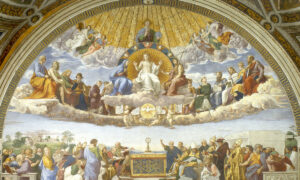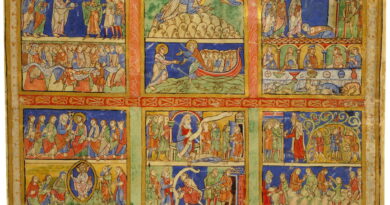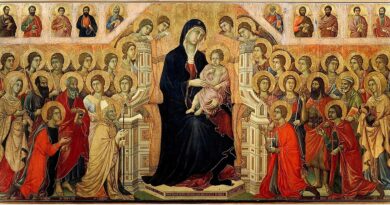Nineteeth Sunday of Ordinary Time/B
Massimo Palombella

In today’s Gospel (Jn 6:41-51) Jesus calls himself “living bread come down from heaven” and says that eating this bread allows one not to die and to live forever. The reference that we all immediately understand is to the Eucharist.
However, there is a prior attitude that invites us to properly place the aforementioned Eucharist thus avoiding that the Eucharist remains entrapped within the realm of purely “magical” understanding. In fact, there is a relationship with the Lord – with historical, human categories – that each of us is called to undertake, construct, heal. A relationship that goes beyond the education received, the commonplaces we learnt as children in catechism. A ‘personal’ relationship, similar to when we fall in love, intimately bond and decide to build our future with a person. A relationship where we belong to each other, we become one and, by virtue of this union, we look at and interpret reality, our past, our future. We cannot live without a relationship like this, we cannot live without being in love, without a handing over of our lives, without a focal point capable of metabolising, merging our strengths and weaknesses, capable of transforming our unresolved issues into meaning, our arid land into a garden, our deaths into life, our limited time into eternity. That is why the true relationship with the Lord allows us to perceive the “forever”, to have a vision beyond death. This intimate relationship goes beyond and contains every human relationship of ours and allows its rightful place and true quality.
The Eucharist is the historical, concrete “becoming” of the aforementioned relationship, where the Lord metabolises Himself in us and transforms us into Him.
The Eucharist is the “nuptial” fulfilment of our relationship with the Lord, a fulfilment that must be prepared, cared for, savoured in order to be each day more in the “life in abundance”.
The Communion antiphon for today’s celebration is taken from Chapter VI of John’s Gospel (Jn 6:52) with the following text:
“Panis, quem ego dedero, caro mea est pro saeculi vita.”
(The bread which I will give is my flesh for the life of the world).
The attached music, in Gregorian Chant, is taken from the Graduale Triplex published in Solesmes in 1979. The interpretation is by the “Schola des moines de l’abbaye de Kergonan”. The music track can be found on the CD “Le Verbe s’est fait chair” published by Studio SM in 2011.
A blessed Sunday and heartfelt greetings.


